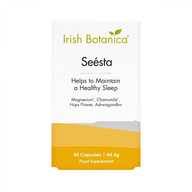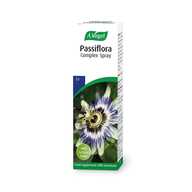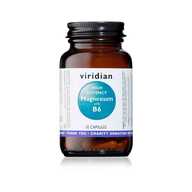The menopausal process does not necessarily raise stress levels, but women at midlife may face many new stressors.
Menopause - The Stress Factor
The transition into menopause is a natural phase in a woman's life, and while it doesn't inherently induce stress, the accompanying physiological and emotional changes can intersect with a myriad of midlife challenges. At this stage, women might have to come to terms with ageing, empty-nest syndrome, career transitions, or caregiving responsibilities for ageing parents. These simultaneous stressors, combined with hormonal fluctuations, can amplify feelings of unease or anxiety. Thus, while menopause itself doesn't directly elevate stress, the convergence of midlife circumstances can create a tapestry of challenges requiring adaptive coping strategies.
Symptoms Of Stress On Menopause
For many women, menopause can feel stressful in itself, managing changes to our body, navigating relationships at home and in work, and facing the challenges of modern day living.
Fluctuating hormone levels during perimenopause and menopause affect the way we respond to stress both physically and emotionally.
It is important that we recognise and understand the impact of stress, whilst adopting good habits to help combat it. Symptoms include:
Hot flushes which can be triggered by stress as it puts pressure on our nervous system
Sleep problems arise with declining oestrogen levels – stress can quickly exacerbate if you lie in bed worrying at night
Mood swings can be triggered by stress when we feel unable to cope
Weight gain can increase as your body finds other ways to increase oestrogen production by storing fat around the middle. We also tend to crave sweet foods that can increase fatigue as well as weight gain.
Digestive issues arise when you are stressed that can lead to indigestion, bloating, constipation etc
How To Manage Stress Levels During Menopause
Avoid processed and high sugar foods. Cortisol, which is the main stress hormone, is released to regulate blood sugars after having coffee and cake. Our aim is to keep cortisol levels low by avoiding food and drinks (especially caffeine) which can cause it to be released.
Balance your diet – focus on a wide variety of fruit and vegetables, as well as good quality protein which includes lean meat, oily fish, eggs, nuts, seeds and pulses.
Stay hydrated – being even moderately dehydrated can affect all the body systems negatively including brain and digestive health. Set a reminder on your phone to drink more water if you find it difficult to remember during the day.
Try to move more – go for a walk after lunch especially if your job is sedentary. Set an alarm on your phone to get up for a quick walk.
If you experience panic attacks or anxiety, practise the 4-7-8 breathing technique. Close your mouth and quietly inhale through your nose for 4 seconds, holding the breath for 7 seconds, and breathe out through your mouth for a count of 8 seconds. Repeat this method a few times until you start to feel calm.
Supplements To Support Stress During The Menopause
Magnesium Bisglycinate
Magnesium bisglycinate is the most absorbable form of magnesium and best for menopause symptoms. It helps to improve mood and reduce stress and anxiety. Furthermore, some research has found a link between magnesium deficiency and increased anxiety.
Levels of magnesium in food sources have declined over recent years so it is important to add in a high quality supplement as it will help with many of the symptoms but especially for dealing with stress.
Drinking a lot of coffee can affect the body’s absorption of magnesium – switch to green tea or herbal teas.
Ashwagandha
Ashwagandha is an important herb in Ayurvedic medicine. It is used to help with stress, anxiety and fatigue. This herb is gaining popularity in the West especially in its role of lowering cortisol levels in the body.
In terms of supplementation, it is available to use by itself or combined with other ingredients like B Vitamins or Magnesium.
It is known as an adaptogenic herb which means it assists in helping the body maintain balance, especially during times of physical or emotional stress.
It is also available in tea or powder form to use as part of a daily routine.
B Vitamins
Vitamin B6 helps make serotonin (our happy hormone) and as women age, serotonin levels drop. Fluctuating levels may be a contributing factor in mood swings common in menopause.
Taking a Vitamin B6 supplement during and after menopause may help prevent symptoms caused by low serotonin levels. These also include loss of energy and depression.
It is recommended to take a good quality B Complex which contains at least 50mg of Vitamin B6 daily. The B Vitamins are water soluble which means the body uses them quickly and they are not stored like other vitamins such as Vitamin D. Food sources include wholegrains, nuts and seeds, leafy green vegetables, meat (B12), fish, chickpeas and poultry.
In times of stress, the B Vitamins help maintain the health of our nervous system along with sleeping well, staying hydrated and practising deep breathing.
If you are on any medication or have a health condition, check with your healthcare provider before introducing any supplements in to your daily routine.








